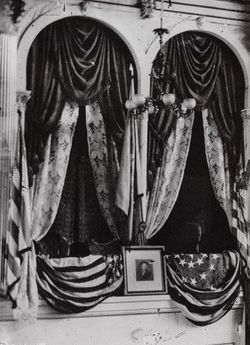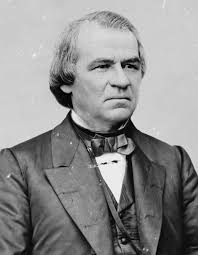Who Was Responsible for the Extreme Violence During the Reconstruction Era
Although it was intended to be a time of healing and progress, Reconstruction in America became a violent endeavor. The founding of the Ku Klux Klan in 1866, coupled with individual and riotous acts of violence were an extension of the first brutal act of the era; the assassination of Abraham Lincoln. Andrew Johnson, who succeeded Lincoln as President of the United States, held none of Lincoln’s compassion or his innate ability to forgive. His quest to punish the southern states for their rebellion against the Union fanned the flames of vengeance. The hatred felt by defeated Confederates and the inevitable violence that stemmed from that hate was omnipresent in the South. Had Lincoln survived to oversee Reconstruction; however, the degree to which the killing and destruction of innocent lives may have been lessened. It can therefore be concluded that Lincoln’s assassin, John Wilkes Booth, was largely responsible for the horrifically violent and inept attempt at Reconstruction.
The Lincoln Assassination
In his Annual Address to Congress on December 8, 1863, President Lincoln promised to any man in a seceded state a “pardon in case he voluntarily takes the oath.”[1]The oath to which he was referring was one of allegiance to the Union and an agreement to uphold emancipation. He intended to restore the Union gradually and with ease. Even prior to assuming the office of President, Lincoln believed the best way to end slavery was to let the institution suffocate itself. He felt that gradual change, rather than abrupt actions was likely to result in a smoother transition in a changing society. He practiced the same methods with regard to introducing the newly freed slaves into society as equal citizens to the white man. When delivering his last public speech on April 11, 1865, Lincoln spoke of the “elective franchise” with regard to black men, and stated that it was his preference that it be “conferred on the very intelligent, and on those who serve our cause as soldiers.”[2]Lincoln had every intention of fighting for suffrage for black males. John Wilkes Booth, a devoted Confederate and white supremacist, was seen in the audience the night Lincoln made these remarks and purportedly claimed that Lincoln just made his “last speech.”
On April 14, 1865 at ten thirty in the evening, John Wilkes Booth fired a bullet into the back of President Lincoln’s head. “Father Abraham” died at approximately seven-thirty the following morning at the Pederson House across the street from Ford’s Theater. On April 16 Andrew Johnson took the oath of office to become the 17th President of the United States. Like Lincoln, Johnson came from poverty and rose to political prominence through self-reliance, long hours of work, and determination. The similarities end there. Johnson was a “lonely, stubborn man” who was “unable to compromise.”[3]These traits were ideologically inverse to those of Lincoln in that President Lincoln remained patient in his actions and realized that the only successful method with which to reincorporate the states to their “proper practical relation with the Union,” was that of compromise.[4]In contrast to Lincoln, Johnson deemed the secessionist states and their leaders to be traitors and sought much harsher treatment and conditions of reinstatement than those of Lincoln.
Andrew Johnson's Reconstruction
- ↑ Abraham Lincoln Association, Collected Works of Abraham Lincoln, University of Michigan http://quod.lib.umic.edu/l/lincoln. This is from Lincoln’s last speech given on April 11, 1865 in reference to the status of the seceded states. He did not recognize the states as having left the Union,rather he held that they were out of alignment with the Union.
- ↑ ibid.
- ↑ Eric Foner, Give Me Liberty: An American History (New York: W.W. Norton & Company, 2009), 534.
- ↑ Collected Works of Abraham Lincoln.



